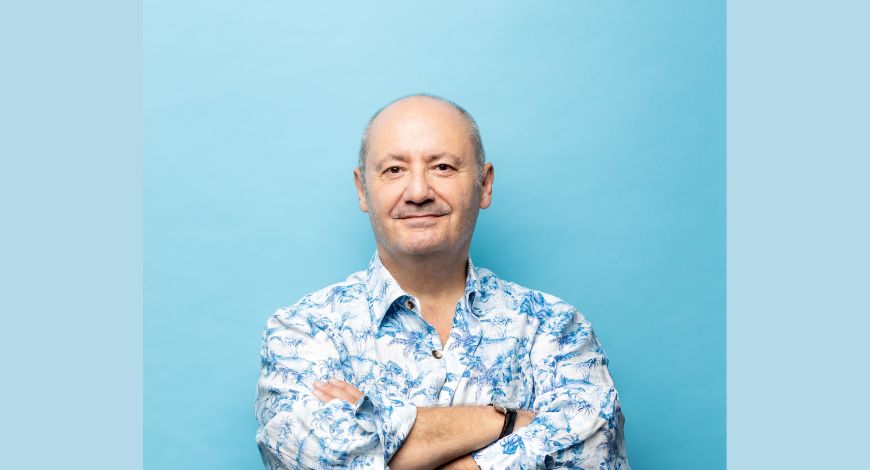From Forbes:
What’s more important to millennials than escaping from their student loans, buying a big-ticket item, or even improving relationships with their family and friends? If you guessed travel, you’d be correct.
The millennial generation is known for placing a high emphasis on being unique, and a major part of that is growing their identity through culturally rich experiences and exploration of the unknown — both of which travel provides in full. This means millennial travel experiences aren’t the same as those of their predecessors, but rather involve more adventure and the desire for more customization. Along with greater daring and initiative, however, comes the necessity for something that millennials don’t often think about, much less prioritize — travel insurance. For millennials, insurance and its processes seem stuck in the dark ages without the digital connectivity they require.
This was the exact reason why Berkshire Hathaway Travel Protection (BHTP) was created. The organization wanted to offer travel insurance that Millennials would use, so they developed direct-to-debit and PayPal payments and created a mobile-first experience throughout the coverage process. As a result, millennials have been responding in record numbers to their products.
To learn more about how BHTP is winning with the millennial generation and the power of disruptive innovation in the travel space, I spoke to BHTP’s president, Dean Sivley.
Jeff Fromm: What are the biggest trends that will impact leisure travel in the next few years?
Dean Sivley: First, Millennials will increasingly seek transformational trips. Millennial travelers are looking for transformational experiences while they travel, even if it’s only during a seven to 14-day trip. This is demonstrated by the growth in adventure travel, which continues to be one of the most popular and fastest-growing types of travel for Millennials, according to the BHTP State of Travel Insurance study we conducted.
Travel insurance that fits into their lifestyles will be in demand, as well. It’s no longer a “one-size-fits-all” approach. Frequent travel-insurance buyers and younger travelers are looking for a more tech-driven, customizable travel-insurance experience. They seek insurance that’s at least at technologically-advanced as the rest of their travel.
Fromm: What percent of discretionary purchases are going toward travel now? What predictions do you have for the next year?
Sivley: According to MMGY Global’s Portrait of American Travelers, when it comes to spending intentions for the year ahead across generations, the news is less than positive. For the first time since 2013, travelers report an intention to spend less on travel during the next 12 months than they did during the previous year. Travelers intend to spend an average of $4,815 on vacations during the next 12 months, $18 less than they report having dedicated to leisure travel during the past 12 months. To keep things in perspective, note that last year’s travelers reported spending intentions of $134 more. What this means is that across the approximately 60 million traveling households in the U.S., up to $9.2 billion less will be spent on leisure travel.
Millennials, on the other hand, are likely to spend more. They spent $4,594 on vacations in the past 12 months with an average of $1,312 on each vacation. That is an 8% increase from 2016. Millennials took an average of 3.5 vacations during the past 12 months, and 35% of Millennials intend to take more vacations.
Fromm: From your research, how are Millennial consumers thinking about protecting their trip?
Sivley: Younger travelers, specifically those between the ages of 25 and 44, are increasingly buying travel insurance to cover their trips. In 2016, 30% of younger travelers said they planned to buy more travel insurance in the upcoming year; in 2017, that number zoomed to 70%. Their reasons for buying more aren’t terribly different from older travelers’ reasons, except for one thing: trip type. Younger travelers take more trips of all kinds, but they increasingly like to take highly insurable trips like adventure travel and – believe it or not – cruises. This particular behavior is being driven by 35-44-year-old female travelers, who exhibit many of the same fearless travel behaviors of their male counterparts from ages 25-34, but then exhibit much more conservative and family-oriented travel behaviors – including taking cruises – when they turn 35 and/or have children. Regardless of their overall behaviors, this group is living up to their billing of being “the key to the future health of the travel industry.”
Fromm: What does the future of travel look like? How are Millennials shaping this future?
Sivley: The travel industry has always evolved from disruption, whether through air travel or as the Internet opened up the world to travelers. Today, data science is empowering mobile-enabled travelers through more customized shopping, booking and travel experiences. These innovations have touched every space in the travel industry, including travel insurance, to make travel more personalized, faster, and easier.
As more innovations disrupt the travel industry, I expect travel to be more accessible to a wider group of people thanks to greater choice and decreasing costs and more innovative travel insurance products that serve as a travel ally.
Millennials are the generation driving growth in the travel industry. As Millennials force brands to think mobile-first and communicate authentically, it’s likely that this will impact travel by encouraging travel and tourism brands to communicate in ways that are tailored to each segment within the Millennial group.
Fromm: How will the travel insurance industry cater to Millennials in the future?
Sivley: Looking forward, I expect that travel insurance products will become more customizable and tailored to each individual’s needs. When you redefine travel insurance and travel protection, the industry is wide open for innovation.
Jeff Fromm , CONTRIBUTOR
I speak and consult on Millennials, Generation Z and innovation. Opinions expressed by Forbes Contributors are their own.








